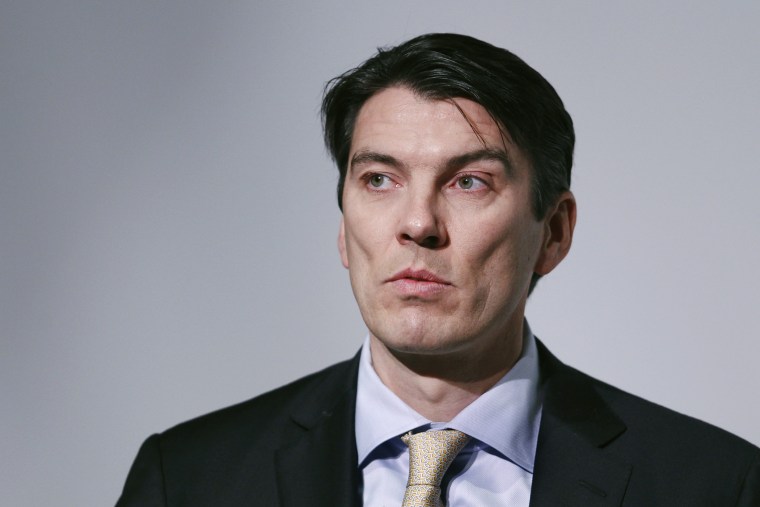It’s hard to defend a chief executive who uses a one-time $2 million spike in his company’s medical bills to justify a permanent cut in pension benefits. Especially when that executive—Tim Armstrong of AOL--was paid a reported $12 million last year. If AOL really and truly had to balance out that $2 million loss, why not lower Armstrong’s compensation package to a still-princely $10 million?
Armstrong may also, according to one patient-privacy advocate quoted in the Wall Street Journal, have violated medical-privacy law by blurting out to AOL employees that the spike was attributable to medical complications in the births of two “distressed babies.” (When the Journal asked AOL about this, AOL declined comment.) Apparently you didn’t have to be a genius, if you worked at AOL, to figure out which employees had brought these two expensive babies into the world. (The mother of one of them told her story here.)
Let’s also stipulate that Armstrong, just a few months earlier, publicly fired an employee after that employee snapped his photograph in a meeting. Such high-handed cruelty is beyond the pale. Armstrong later apologized after an uproar in the press, but he didn’t reinstate the employee. Armstrong similarly apologized, after this latest uproar in the press, for how he rationalized the pension cut, and this time reversed the offending action: AOL won’t go forward with the pension cut after all.
Even so, there is one aspect to Armstrong’s behavior in this otherwise-dishonorable episode that deserves praise: honesty. Armstrong dared—foolishly, in this instance—to acknowledge that providing decent health care coverage requires taking money away from some people in order to give it to other people. Insurance, like the government, redistributes income. Indeed, in the case of insurance, redistributing income is—shhhh!--pretty much the whole idea.
Everybody recognizes that in the abstract, but Americans often resist knowing it in the particular. Thus when Congress was arguing over the Affordable Care Act, Republican Sen. John Kyl of Arizona, questioned its mandate that Obamacare cover maternity care. “I don’t need maternity care,” Kyl said, “and so requiring that to be in my insurance policy is something that I don’t need and will make the policy more expensive.” Republican Rep. Renee Ellmers of North Carolina, echoed this complaint in October while questioning Health and Human Services Secretary Kathleen Sebelius: “To the best of your knowledge, has a man ever delivered a baby?”
When Kyl made his complaint, Democratic Sen. Debbie Stabenow of Michigan, was ready with a slam-dunk response: Even if Kyl didn’t need maternity care, “I think your mom probably did.”
Let’s imagine Kyl had said something a little different: “I don’t need health coverage for ovarian cancer, because I don’t have ovaries. Why should I have to pay for that?” Of course, Kyl would never say such a thing, because it would seem brutally inhumane. But the logic is no different—and in this instance Stabenow would have had to struggle for a snappy comeback. The real answer to both questions is: Insurance is a deliberately collective enterprise. Men don’t get ovarian cancer and women don’t get testicular cancer, but each sex agrees to pay for the other anyway. You can extend this logic to people who have a heightened risk of getting certain diseases versus those who do not; to the young versus the old; and to those who experience bad medical fortune versus those lucky enough not to. Because each of us has a different body chemistry and life experience, what each of us takes out versus what each of us puts in will always vary from person to person.
Armstrong made this redistributive process more explicit in his comments to employees than is deemed socially acceptable. AOL is presumably a self-insured company (most big corporations are), and the medical experiences of one or two employees can indeed skew the company’s health care costs a little higher than expected. (If it skews them a lot higher, presumably reinsurance will absorb the extra cost.) That is not—repeat, it is not—a justification to scapegoat the employees who incurred this extra cost.
But Armstrong doesn’t appear to have been doing that—not deliberately, anyway. He was merely explaining how health insurance works.
There is, to be sure, no defending Armstrong’s actual pension cut. It was clearly wrong to use this fleeting overage to justify a permanent benefit loss. Armstrong was on stronger ground when he cited as justification additional costs associated with Obamacare’s implementation--because those are permanent. But msnbc's Suzy Khimm finds reason to suspect Armstrong overstated these costs. And Armstrong’s subsequent reversal demonstrates that there were other ways to absorb these added costs.
In Frank Capra’s 1946 film, It’s A Wonderful Life, there’s a famous scene where the small-town banker George Bailey (Jimmy Stewart) explains how a savings & loan bank works. “Your money’s in Joe’s house,” he says, “that’s right next to yours, and then the Kennedy house and Mrs. Maitland’s house and then a hundred others.” Health insurance is a little bit like that, too. When Sam gets sick, Sally has to pay, even if Sally is herself blessed with perfect health. But the we’re-all-in-this-together ethic expressed in It’s A Wonderful Life is no longer in fashion. Today it has yielded to rigidly individualist dogma that makes us far too reluctant to recognize our mutual interdependence. If George Bailey tried to give his 1946 speech in 2014, Mrs. Maitland would angrily tell him he was violating her privacy.
A decade ago, when I worked at Slate magazine, my wife was diagnosed with a terminal disease. Her treatment cost the parent company (in those days, Microsoft) so much money that I would occasionally quip to colleagues that I had become Slate’s highest-compensated staffer. I would of course have given anything for this not to be so. But in all likelihood, during those three and a half years, my little Microsoft division incurred higher health care costs than usual. That’s just the way life is. Americans should stop being so squeamish about it.
